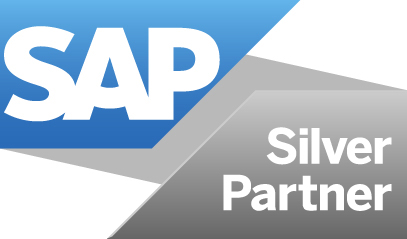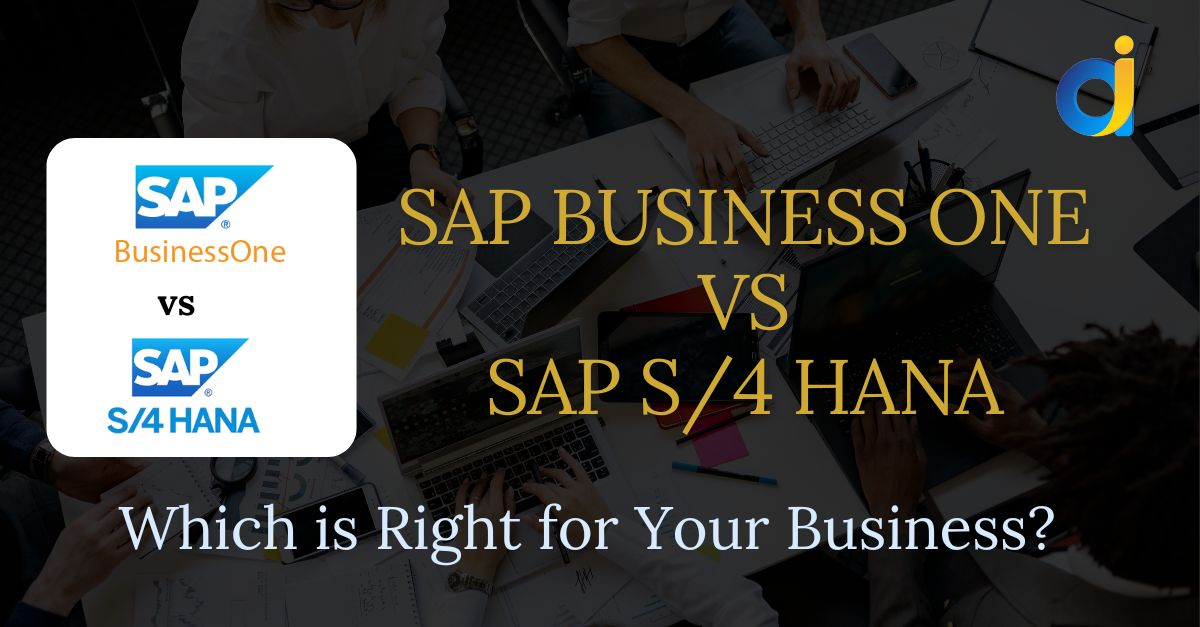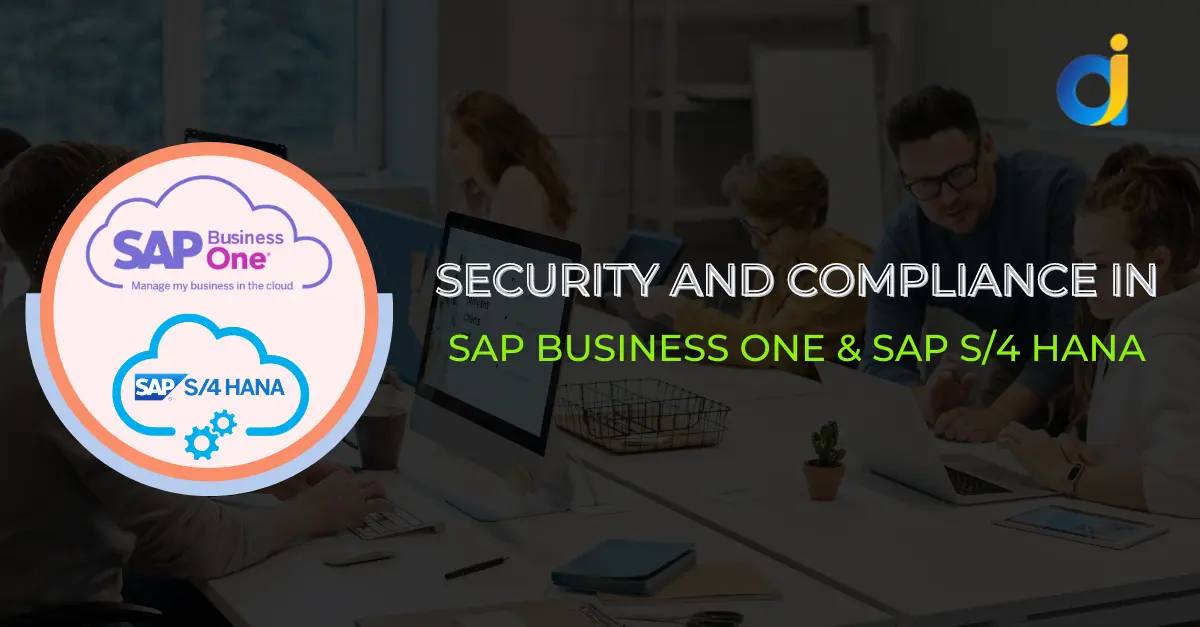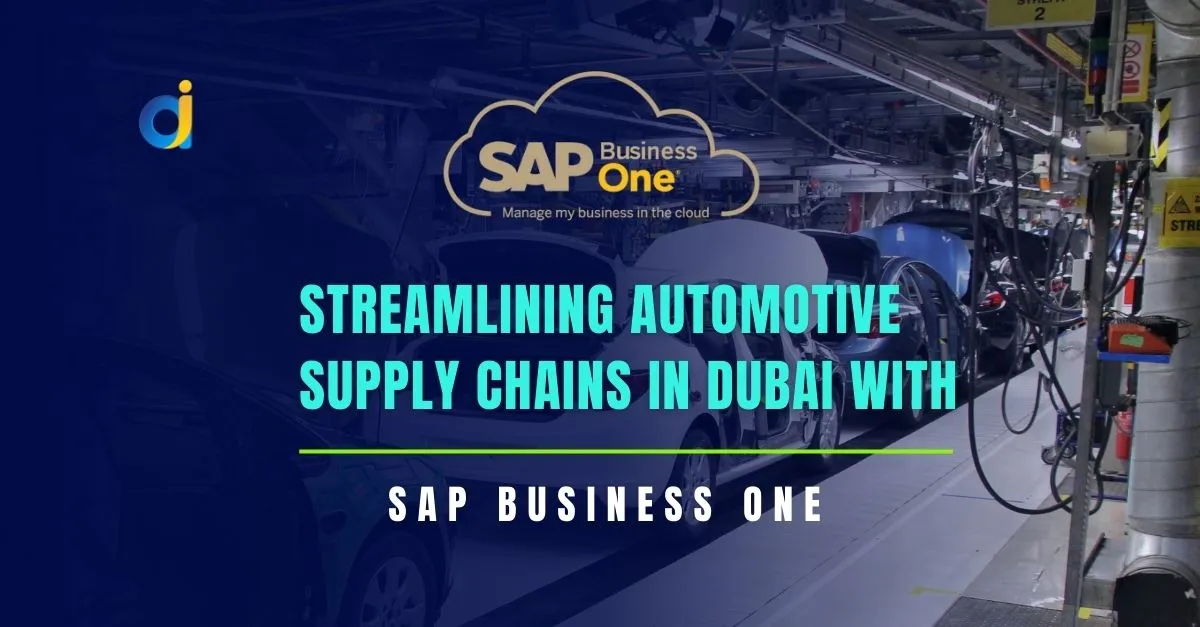Choosing the right enterprise resource planning (ERP) system can dramatically alter the course of your business, shaping its efficiency and growth potential. SAP Business One and SAP S/4HANA stand out as leading solutions in this critical decision-making process.
Each caters to distinct needs: SAP Business One is a gem for small and medium-sized enterprises (SMEs), offering cost-effective answers, ease of use, and minimal IT demands.
On the other side, SAP S/4HANA shines for larger organisations or those with intricate operations by providing advanced features such as real-time analytics and digital transformation support.
The financial commitment also differs markedly between these two platforms. SMEs often find SAP Business One’s subscription model or one-off purchase price appealing due to its flexibility and affordability.
In contrast, large enterprises may lean towards the initial investment in SAP S/4HANA because of its comprehensive capabilities that justify higher upfront costs.
As businesses evolve, it’s crucial to have an ERP solution that grows alongside them — both options promise scalability tailored to each company’s journey. Security remains paramount across both platforms safeguarding data against emerging cyber threats while presenting companies with deployment choices including cloud-based services or on-premises installation depending on their unique preferences.
This article aims to delve deep into understanding what sets these two powerhouses apart so you can make an informed choice fitting your organisation’s stature and ambitions like a glove.
It gets exciting from here!
Key Takeaways
- SAP Business One is perfect for small and medium-sized businesses because it offers cost-effective solutions and a user-friendly interface, simplifying operations without needing much IT expertise.
- SAP S/4HANA suits larger organisations or those with complex requirements thanks to its advanced features like real-time analytics, integration capabilities, and support for digital transformations.
- Pricing models vary between the two systems; SAP Business One often follows a subscription-based model or a one-time purchase which appeals to SMEs looking for flexibility, whereas SAP S/4HANA has higher upfront costs but provides extensive functionalities beneficial for large enterprises.
- Both ERP solutions offer scalability meaning they can grow with your business. However, their target market differences mean that choosing the right system depends heavily on your company’s size, needs, and long-term goals.
- Security features are robust across both platforms ensuring sensitive data is well protected against cyber threats. The choice between cloud-based options or on-premises deployment further adds flexibility based on specific company needs.
Understanding the Difference Between SAP Business One and SAP S/4 HANA
SAP Business One and SAP S/4HANA serve different types of businesses. I see that SAP Business One is ideal for small to medium-sized enterprises, while SAP S/4HANA caters to larger organisations with complex requirements.
Scale and target audience
SAP Business One targets small and medium-sized businesses (SMEs) seeking cost-effective solutions for their operations. It offers comprehensive functionalities that cater to the specific needs of these enterprises, allowing them to manage critical business processes efficiently.
This ERP solution provides a user-friendly experience, making it accessible for companies with limited IT resources.
On the other hand, SAP S/4HANA is designed for larger organisations or those planning global operations. Its scalability supports complex business needs and diverse manufacturing management requirements.
As firms grow and evolve, they often look towards S/4HANA for its advanced capabilities in data analytics, integration tools, and digital transformation support. Each option addresses distinct market segments based on size and operational demands.
Features and functionality
SAP S/4HANA offers advanced features and functionality tailored for large enterprises. Its integration tools and capabilities enable seamless connectivity across various business processes, enhancing overall efficiency.
I appreciate the item innovation functionality that supports real-time analytics and insights, driving informed decision-making. On the other hand, SAP Business One is designed specifically for small and medium-sized enterprises (SMEs).
It provides essential modules that cover finance, inventory management, sales, and customer service in one cost-effective solution.
In my experience with these platforms, I found SAP Business One particularly user-friendly for smaller teams. The cloud-based solutions streamline operations without overwhelming users with unnecessary complexity.
Both systems cater to discrete ERP requirements; however, their scale significantly influences their attributes. While SAP S/4HANA may be better suited for larger organisations seeking expansive application scalability, SAP Business One stands out as a practical choice for SMEs looking to optimise business management within financial resources constraints.
Pricing and billing
Pricing for SAP Business One typically follows a subscription-based model or can involve a one-time purchase. This flexibility makes it particularly appealing to small and medium-sized businesses (SMEs) that require cost-effective solutions without compromising on essential features.
Billing options provide some leeway, allowing companies to decide between cloud-based solutions or on-premises deployment based on their specific needs.
SAP S/4HANA generally entails a higher upfront investment due to its advanced features tailored for larger enterprises. Monthly billing models are also available but can lead to elevated costs over time.
For decision-makers, understanding these pricing structures is crucial in aligning technology solutions with organisational budget considerations and long-term goals. Now, let’s explore the factors influencing your choice between SAP Business One and SAP S/4HANA for your business needs.
Choosing Between SAP Business One and SAP S/4HANA for Your Business
Choosing the right software for your business can feel overwhelming. We need to weigh our specific needs against what each solution offers.
Factors to consider
I evaluate specific factors before deciding between SAP Business One and SAP S/4HANA. The size of my business plays a vital role. Small and medium-sized businesses often benefit more from the cost-effective solutions offered by SAP Business One.
I also look closely at features and functionality to ensure they align with my needs.
Security is another crucial aspect. I want assurance that both systems provide strong protection for sensitive data. Pricing models are important too; understanding billing solutions, such as subscription-based pricing versus one-off fees, helps me make an informed choice about the long-term costs involved in using either ERP solution.
Benefits of SAP Business One
Transitioning from factors to consider, I find SAP Business One offers a variety of benefits for businesses like mine. This software provides powerful tools and functionalities that cater specifically to small and medium-sized enterprises (SMEs). Here are the key advantages:
- Cost-effective Solutions: SAP Business One is designed with SMEs in mind, offering affordable pricing structures. Subscription-based pricing allows me to manage costs effectively while still accessing critical enterprise resource planning (ERP) capabilities.
- User-friendly Interface: The interface is intuitive and easy to navigate. Employees can quickly adapt to the system, reducing the need for extensive training and allowing for a smoother workflow.
- Comprehensive Functionality: This software combines various functions into one platform, including finance, sales, inventory management, and customer relationship management. It streamlines operations, which helps me manage different business areas seamlessly.
- Scalability: As my business grows, so too can SAP Business One. The system easily accommodates increased data and user numbers without compromising performance.
- Cloud-based Solutions: With cloud deployment options available, I can access important data from anywhere at any time. This flexibility supports remote work arrangements and enhances collaboration among teams.
- Robust Integration Capabilities: SAP Business One integrates well with other applications and systems I might already be using. This ensures all my software works together efficiently, enhancing overall productivity.
- Enhanced Security Features: Data security is crucial for any business today. The software includes strong security measures that protect sensitive information against cyber threats.
- Real-time Analytics: The built-in reporting tools provide insightful analytics in real time. I gain valuable insights into my business operations, allowing informed decision-making based on current data rather than outdated reports.
These benefits illustrate why choosing SAP Business One could significantly enhance operational efficiency in an SME environment like mine.
Benefits of SAP S/4HANA
SAP S/4HANA offers many advantages that can significantly benefit my business. The software caters well to the needs of small and medium-sized enterprises (SMEs) through its powerful features.
- Real-Time Data Processing: S/4HANA processes data in real time, enabling instant reporting and analysis. This feature supports timely decision-making, which is crucial for staying competitive.
- Simplified User Experience: The interface is intuitive and user-friendly. I find it easier to navigate, which helps streamline training for employees and reduces onboarding time.
- Advanced Analytics: The built-in analytics capabilities allow me to gain insights into various aspects of operations quickly. It enhances forecasting accuracy, helping me make informed decisions.
- Scalability: As my business grows, S/4HANA can scale easily without major disruptions. This flexibility ensures that I can manage larger volumes of data efficiently over time.
- Integration Capabilities: SAP S/4HANA integrates seamlessly with other SAP solutions and third-party applications. This integration simplifies my software ecosystem, making workflows smoother across departments.
- Cloud-Based Options: Choosing a cloud-based solution allows me to access the system from anywhere with an internet connection. This flexibility supports remote work arrangements and improves collaboration among teams.
- Cost-Effective Solutions: With subscription-based pricing models available, I can choose a plan that fits my budget while still accessing advanced ERP functionalities suitable for SMEs.
- Enhanced Security Features: The platform includes robust security measures to protect sensitive business data. I feel more confident knowing that there are safeguards against cyber threats that could compromise operations.
This exploration of benefits shows how S/4HANA aligns with the needs of modern businesses looking for effective enterprise resource planning (ERP) solutions. Real-life user experiences can further highlight its impact on organisations adapting to new technologies and digital transformations.
Real-Life User Experiences with SAP Business One and SAP S/4HANA
Users share their journeys with SAP Business One and SAP S/4HANA. Their stories highlight the real impact of these solutions on daily operations. They discuss successes, challenges, and how each software fits into their business needs.
Hearing from actual users can help in making informed choices about which option to pursue next. Take a closer look at these experiences to discover valuable insights!
Conclusion and Recommendations
Choosing between SAP Business One and SAP S/4HANA requires careful thought. Each option offers unique features tailored to different business sizes. Practicality is key; both solutions provide efficient pathways for managing enterprise resources effectively.
Implementing either can significantly enhance operations and drive growth, helping small and medium-sized enterprises thrive in today’s competitive landscape. I encourage you to assess your specific needs and priorities thoroughly before making a decision that will shape the future of your organisation.
FAQs: SAP Business One vs. SAP S4HANA







